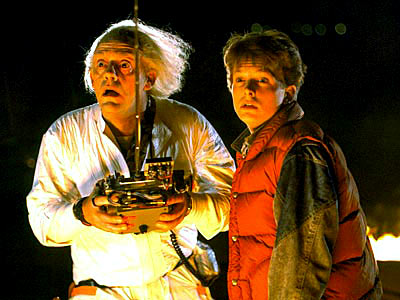"Now That's What I Call Music, Explored"
Comment
I am glad to read that someone else in the blogosphere was perplexed by the relatively sunny attitude of the New York Times piece regarding the future of the NOW That's What I Call Music! franchise. It is also interesting that you connect the difficulty that NOW's distributors are experiencing trying to peddle even the biggest radio hits to consumers on a physical CD to the general "decline of th
 e music industry." While the public might have gained an immunity against NOW's aggressively metronomic release schedule and its garishly bright packaging (see image at left) over the past ten years, the doubts surrounding the once-bulletproof series are perhaps emblematic of a sea change in music retailing. I am thinking of the marketing and sale of the single in particular, as a recent Idolator post compares the idea of a quarterly hits-heavy compilation to a sort of hedge fund in which each of the major record labels--Sony BMG, Warner Music, EMI, and Universal Music--could all profit (again) from the successes of their competitors. However, a business model such as this is dependent on the health of CD sales in general and is difficult to sustain in an environment where digital music retailers offer the same songs featured on each version of NOW for less than a dollar apiece.
e music industry." While the public might have gained an immunity against NOW's aggressively metronomic release schedule and its garishly bright packaging (see image at left) over the past ten years, the doubts surrounding the once-bulletproof series are perhaps emblematic of a sea change in music retailing. I am thinking of the marketing and sale of the single in particular, as a recent Idolator post compares the idea of a quarterly hits-heavy compilation to a sort of hedge fund in which each of the major record labels--Sony BMG, Warner Music, EMI, and Universal Music--could all profit (again) from the successes of their competitors. However, a business model such as this is dependent on the health of CD sales in general and is difficult to sustain in an environment where digital music retailers offer the same songs featured on each version of NOW for less than a dollar apiece.
I recognize that you touch on this point in noting that it is "not a good sign when labels begin hinting that the entire industry as they know it soon probably won't exist," but I am curious to know whether or not you think that this what the labels want in some sense. Is it possible that the industry, finally being moved by the winds of change, is recognizing that when given the option, consumers simply will not buy an entire album for only a handful of songs they truly desire? At any rate, the decline of NOW might be good for the music business if only to alter the perception that "less killer, more filler" is still the mantra of the major labels.
"Why commercial music needs a talking-to"
Comment
This is an impressive and thorough deconstruction of the divergent motives that drive the marketing of mainstream and independent music, and it is an argument that I am wont to agree with completely. Nevertheless, I wonder how you think the legal issues of the major labels over the past six or seven years alters the perspective that the mainstream music industry is content to remain "stuck in single-land." The four biggest labels just escaped a digital music price-fixing scandal which, for me, recalled the 2002 class-action suit in which these corporations were convicted for colluding to artificially inflate the price of CDs. Perhaps the focus on the quick and easy distribution of singles in the digital marketplace is better for the mainstream consumer in the long run, as well as a safeguard against the sometimes questionable ethics of the major record labels.
On the other hand, your point about what constitutes a "throwaway track"--and how many of them should be reasonably expected on a full album--is well taken. The discontinuity between Billboard's top singles and albums charts (see image at right) illustrates the failure of commercially-oriented artists to conceive of the album as an organic whole. Contrasting this to your take on the independent music scene, "where often the single (because it is more commercial and supposed to be radio-ready) is the throwaway track and the deep cuts are the best stuff," I am little confused as to whether you consider "throwaway" to mean a song that is wholly unmemorable or simply an arbitrarily small piece of a more satisfying whole found on the complete record. Indeed, independent artists might not have their singles prominently featured on a radio playlist, and thus count on the buzz generated by a song's circulation on music blogs or MySpace to spark interest in their albums. Though your post posits many good reasons why the music industry should not stake its financial and creative fortunes entirely on the production of good, catchy singles, I believe that the format is too integral to the expansion and continual reinvention of the business to be totally discarded.


